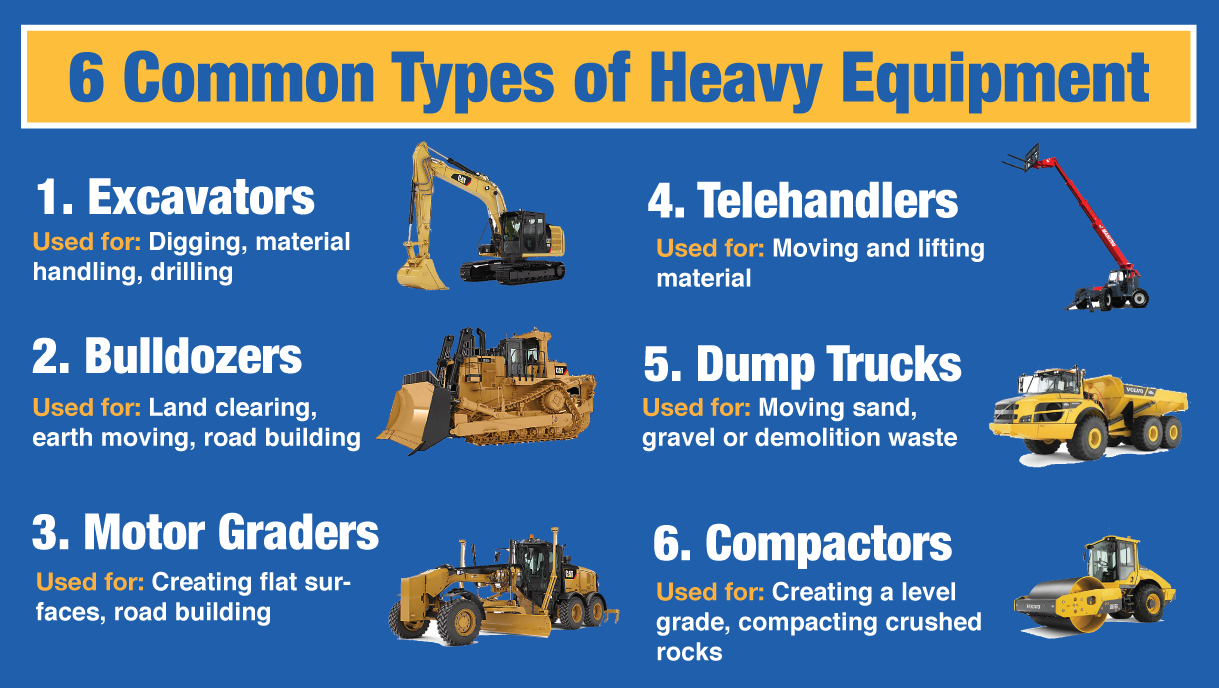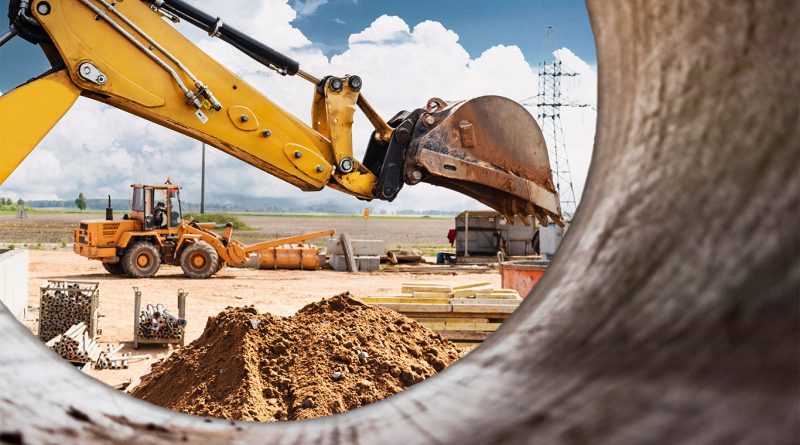Top Options for Construction Equipment Rentals Bremen, GA: Start Today
Top Options for Construction Equipment Rentals Bremen, GA: Start Today
Blog Article
The Essential Guide to Leasing Excavators for Building And Construction Projects
Renting excavators for building and construction jobs is a critical choice that demands a detailed understanding of numerous elements to make certain both performance and cost-effectiveness. From selecting the suitable excavator type and size to bargaining rental terms and guaranteeing security methods, each step plays a pivotal function in the total success of your project. Understanding these components not just optimizes productivity yet also aids in reducing expenditures. As you take into consideration the complexities of renting excavators, it's necessary to understand the nuances that can substantially influence your task. What are these subtleties, and just how can they affect your building outcomes?
Kinds Of Excavators
Excavators can be found in different types, each made to perform particular jobs in construction jobs. One of the most common kind is the conventional excavator, additionally referred to as a crawler excavator, which is common on the majority of job websites for its adaptability in trenching, material, and digging handling. These devices operate tracks, supplying security and mobility over unequal terrain.
Another crucial variant is the mini excavator, treasured for its compact size and agility. Ideal for tiny to medium-sized tasks, mini excavators excel in constrained rooms where larger makers would certainly battle. They are often utilized for landscape design, utility job, and small demolition.
For tasks calling for extensive reach, the long-reach excavator is vital. Equipped with a longer boom and arm, these machines can operate in locations that are difficult to gain access to, such as across water bodies or deep excavations.
Lastly, there are customized excavators like the suction excavator, which uses high-powered fans to vacuum up soil and particles, making it ideal for fragile underground utilities. The dragline excavator, an additional specialized type, is usually made use of in large civil design jobs like canal dredging and mining due to its capability to lift hefty tons over fars away.
Selecting the Right Size
Selecting the suitable dimension of an excavator is critical for the efficiency and success of any building job. The size affects not only the device's capability to manage particular tasks but likewise the operational costs and website ease of access. Excavators are available in various dimensions, from small units suitable for small household projects to big machines created for extensive commercial or commercial undertakings.
Recognizing the range of the project is necessary when choosing on the excavator dimension. Alternatively, large earthmoving operations, like roadway building or big structure digs, require the usage of huge or basic excavators.
Consider the website's surface and access points as well. Larger excavators might face difficulties in limited or unequal locations, making smaller versions more sensible. By completely evaluating these elements, construction managers can ensure they choose an excavator dimension that maximizes efficiency and minimizes job hold-ups.
Rental Contract Fundamentals

Equally important navigate to this site is the comprehensive failure of costs. This consists of the daily, once a week, or month-to-month rental rates, and any added charges such as cleaning, distribution, or fuel charges. It's recommended to ask about potential fines for late returns or damages to avoid unexpected expenses.
The condition of the excavator at the time of rental need to likewise be well-documented. Make sure the agreement consists of a comprehensive evaluation record that keeps in mind any type of pre-existing damage. This protects you from responsibility for problems that existed prior to your rental period started.
Insurance coverage is another essential aspect. Confirm whether the rental business offers insurance policy or if you need to secure your own policy. Finally, recognize the terms for devices maintenance and fixings. Knowing your obligations for maintenance during the rental duration will certainly aid maintain the excavator in optimum functioning condition, minimizing downtime and boosting job performance.
Upkeep and Security Tips
When taking care of excavators on a building site, sticking to appropriate upkeep and safety and security procedures is crucial for ensuring both operational efficiency and employee safety. Oiling relocating parts and ensuring fluid degrees are optimal can prevent pricey downtime and expand the maker's operational life expectancy.
Safety and security measures are equally crucial. Operators ought to be extensively i thought about this educated and certified to manage excavators, comprehending the machine's limitations and controls. It's vital to conduct everyday evaluations, concentrating on safety attributes such as alarm systems, seatbelts, and emergency shutoff switches over. Furthermore, keeping a tidy and orderly worksite reduces the threat of mishaps. Clear interaction protocols, including hand signals and radio communication, need to be developed to work with procedures and motions properly.
Implementing a robust maintenance timetable and fostering a society of safety can alleviate dangers substantially. Constantly consult the manufacturer's guidebook for particular upkeep periods and safety and security standards. By prioritizing these aspects, building and construction jobs can proceed smoothly, reducing disruptions and making sure a risk-free working setting for all workers involved.
Cost-Saving Approaches
When leasing excavators for building and construction projects,Efficient cost-saving strategies are critical for making the most of the return on financial investment. One crucial technique is to conduct a complete requirements assessment before leasing. Recognizing the specific requirements of your job assists in selecting the ideal type and size of excavator, avoiding unnecessary expenses on excessively customized or extra-large equipment.
An additional vital method is to negotiate rental terms. Numerous rental firms provide adaptable prices frameworks, specifically for long-term rentals. Establishing an excellent partnership with the rental copyright can also lead to commitment discounts and better terms. Additionally, scheduling ahead of time can sometimes secure reduced rates contrasted to last-minute rentals.

Lastly, consider the overall cost of ownership, consisting of insurance coverage, fuel, and transport. Bundling these services with the rental agreement can often lead to a much more beneficial total bundle. By executing these strategies, building jobs can attain substantial expense performances while making certain functional effectiveness.
Final Thought
In conclusion, the critical selection and service of excavators for building and construction jobs demand a detailed understanding of excavator types, ideal track loader for rent near me sizing, and the complexities of rental contracts. Carrying out cost-saving strategies with thorough preparation and settlement can additionally improve task performance while managing costs.
From picking the suitable excavator type and size to discussing rental terms and making sure safety procedures, each action plays a pivotal duty in the general success of your project. rental company near Bremen GA. The most usual type is the conventional excavator, also known as a spider excavator, which is ubiquitous on many work websites for its convenience in product, trenching, and excavating handling. By thoroughly evaluating these variables, building and construction supervisors can ensure they pick an excavator size that enhances performance and minimizes project delays

Knowing your duties for upkeep throughout the rental duration will help maintain the excavator in optimal working condition, reducing downtime and improving task effectiveness.
In conclusion, the tactical choice and service of excavators for construction jobs necessitate a thorough understanding of excavator types, appropriate sizing, and the intricacies of rental contracts.
Report this page